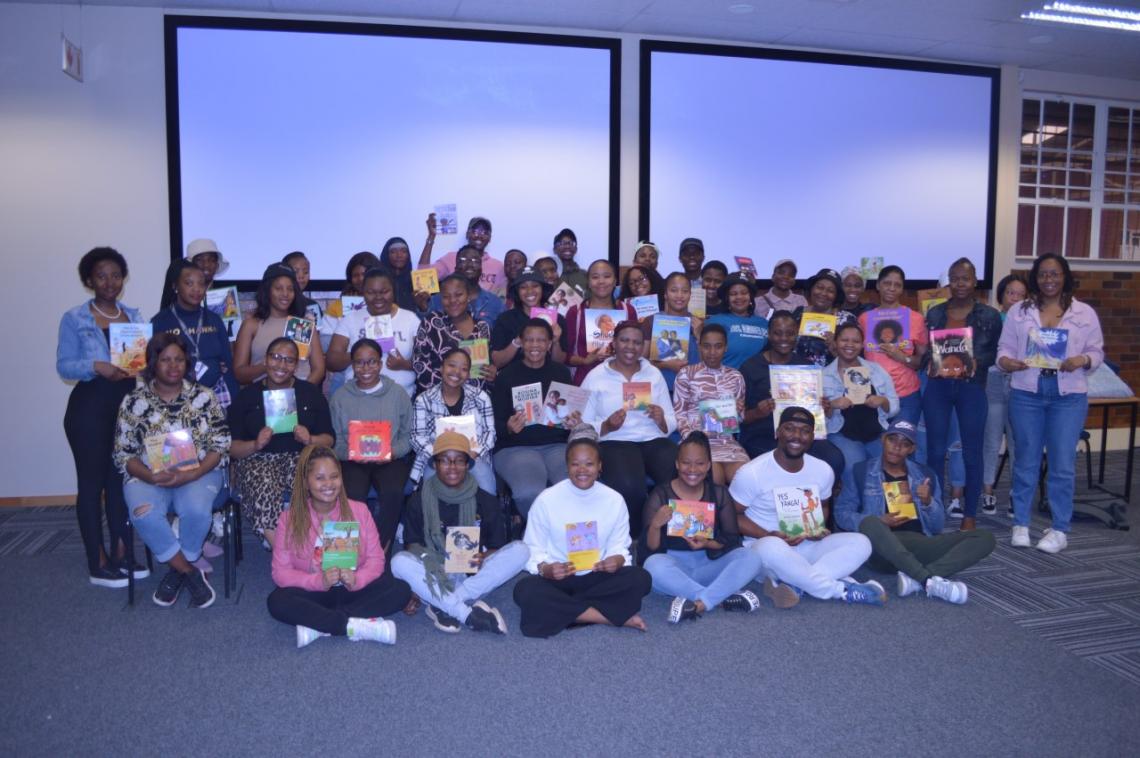Oldrin Masowa
Storytelling is regarded as a form of information sharing and at the Faculty of Education they believe that great stories happen to those that can share them. The Faculty hosted a three day literature workshop on the Potchefstroom campus.
The aim of this workshop was to train and develop the Final-year BEd intermediate-phase students, on how to draft the literary texts volume of original stories in Setswana language for the grade 4 learners and teachers at the intermediate-phase primary schools.
The workshop focused also on the translation of languages mainly English and Setswana storytelling books. Among the delegates were Dr Mabiletja,Senior lecturer in Sepedi, Mr Karabo Mangwekea Senior Lecturer in Setswana and a Setswana Writer, translator and publisher for children’s books Lorato Trok, who shared her expertise and skills needed for writing storytelling books for children.
Dr Dolly Dlavane, the NWU Subject Group Leader for Setswana and African languages and PanSALB Chairperson, believes that multilingual landscape, culture and the depth of languages needs to be embraced and prioritized.
“The African languages on their own have a deep-rooted meaning which cannot be translated or interpreted, so I would wish to see young people, teachers and parents embracing their own languages through reading literary texts to gain more language skills in writing, reading and communicating.”
She also mentioned why this workshop is important and distinctive.
” Having an experienced Setswana writer like Lorato who is knowledgeable about language translation and understand the writing levels for the intermediate-phase learners, has helped to develop and instill love and interest to our students who wish to become the future Setswana writers.”
During the workshop students were given tasks to draft and recited their written children stories in Setswana which were evaluated by both Dr Dlavane and Lorato, through provision of suggestions on how the stories should look this includes story-character changes, storyline, language usage and tittle changes.
“I have realized that there is not much of the Setswana story books for the Grade 4 learners in the schools and this why we decided to hosts this workshop to train our students and publish their drafted stories so that it can be distributed to those Grade 4 Setswana learners in Primary schools to access them,” says Dolly.
Nthabiseng Maringa, a fourth-year BEd student on the NWU Potchefstroom campus, is confident that this workshop has encouraged her to continue writing.
“I have learned that each and every one of us is capable of writing, and has that special talent of being creative, the only thing we need is to get out of our comfort zone and try new things through connecting with relevant people and be willing to learn,” adds Nthabiseng.
Lesego Motlhakane, a fourth-year BEd student on the NWU Potchefstroom campus, highlighted the importance aspects he learned throughout the workshop.
“As a writer I often spend time alone in my desk working on my novels, but I often struggle to be productive enough in terms of producing more short stories, so taking part in this writing workshop has helped to be in touch with creative writers through exchanging of ideas.”
Dr Dlavane is currently conducting numerous academic researches about the usage of language for the Grade 4 learners this includes the type of literary texts which are best suited for the Grade 4 learners, the use of Proverbs in primary schools, book reviewing and teaching for the Grade 4 learners, language of the names for the story characters, tittles of the short stories, academic genres and language capacity.

The students who attended the workshop
